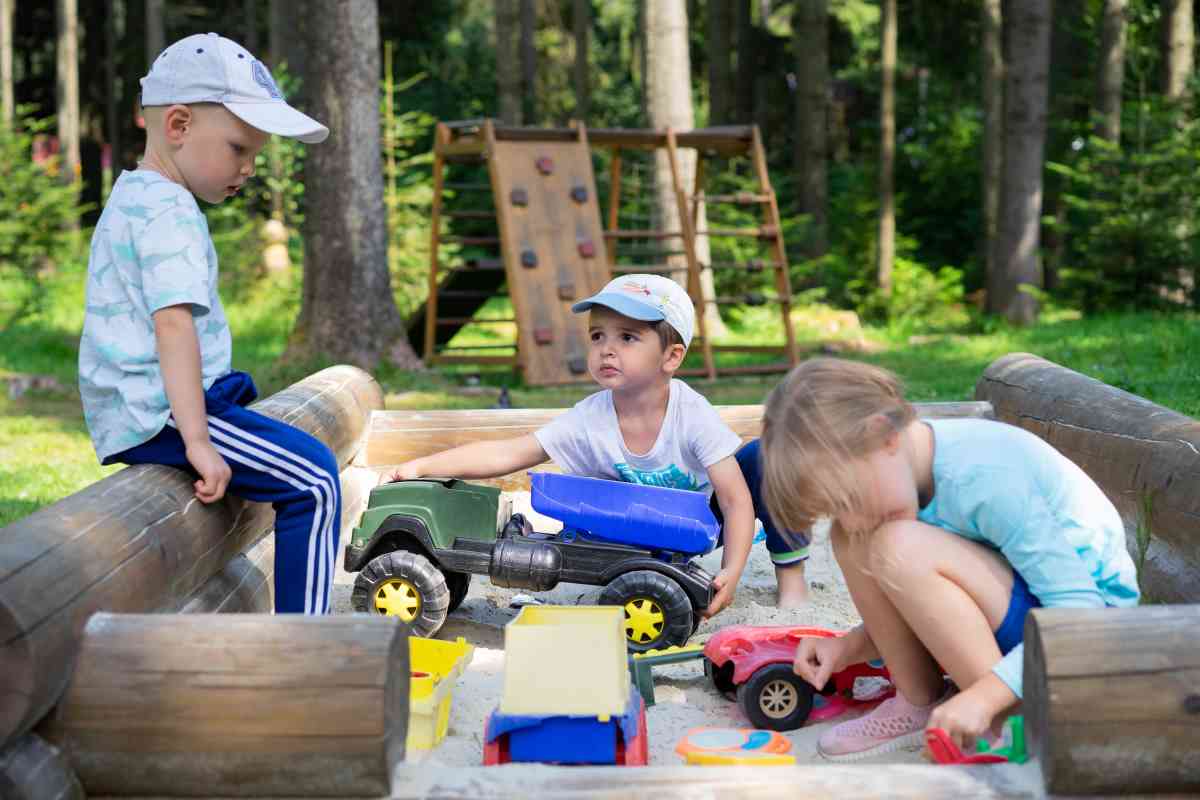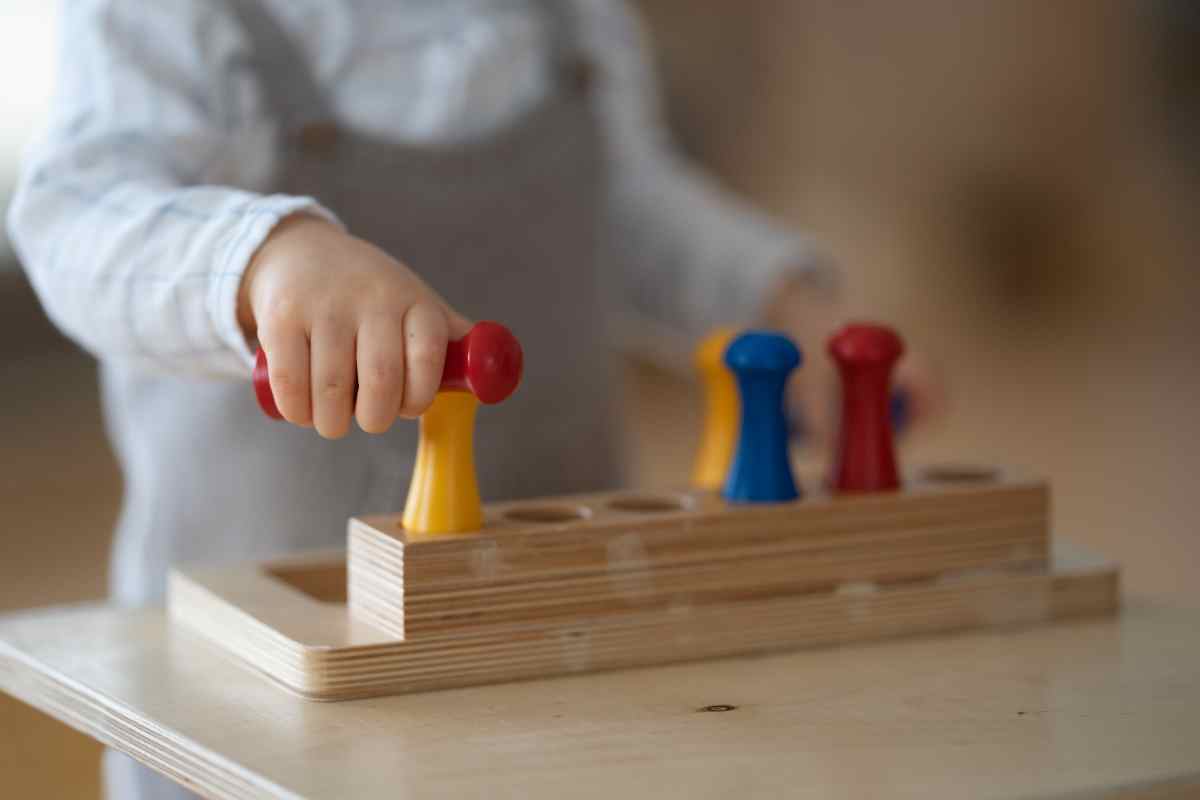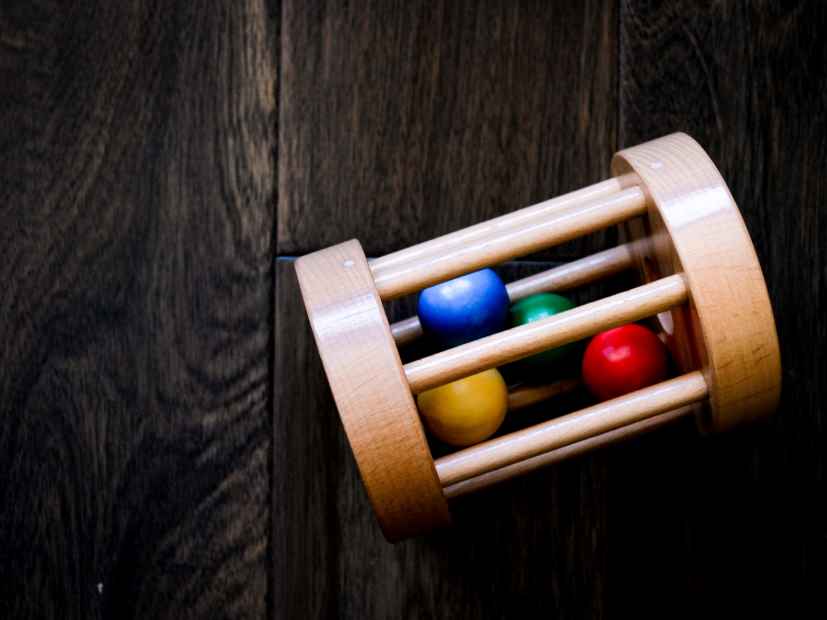Montessori education
Montessori Parenting Guide: Raising Happy and Independent Kids
Table of Contents
I. Introduction
Montessori parenting is an approach to raising children based on the educational philosophy of Dr. Maria Montessori. It emphasizes fostering independence, natural development, and respect for a child’s unique interests and abilities. With Montessori principles, parents can raise happy, confident, and responsible kids. This comprehensive guide will provide an overview of Montessori parenting and how to implement it at home.
We’ll cover the history and core ideas of the Montessori education, outline the major benefits for children, and explain the key techniques and practices. You’ll learn specific ways to create a prepared Montessori environment, select appropriate Montessori materials, and tailor the approach for different ages. We’ll also address common misconceptions, share real-world success stories, and provide abundant resources to help you get started.
Whether you send your kids to a Montessori school or want to bring Montessori at home, this guide will equip you to raise self-motivated learners equipped with independence, skills and confidence to thrive.
II. Understanding Montessori Parenting
The Montessori Philosophy
- Developed by Dr. Maria Montessori, an Italian physician and educator, in the early 1900s
- Based on scientific observations of children’s development
- Core belief: children are naturally eager to learn and develop given freedom and the proper environment
- Goal is to foster confident, independent and inquisitive learners
History of Montessori Education
- First Montessori school opened in 1907 in Rome, Italy
- Method spread globally, reaching US in 1911
- Montessori programs expanded in 1960s along with open education movement
- Over 22,000 schools worldwide follow Montessori principles today
Principles of Montessori Parenting
- Respect for child’s unique interests and natural development
- Prepared home environment tailored to child
- Fostering independence and self-direction
- Uninterrupted blocks of work time
- Observation and sensitive guidance from parents
- Mixed age groups provide peer learning
III. Benefits of Montessori Parenting
Montessori parenting offers many advantages for a child’s growth and development:
- Fosters independence: Children gain confidence in completing tasks and solving problems on their own. This self-reliance is useful throughout life.
- Promotes motor and cognitive skills: Montessori materials and activities are designed to improve fine motor, gross motor, and thinking abilities.
- Supports natural learning: Children are free to follow their interests and learn at their own pace. This results in deeper retention and enjoyment of learning.
- Enhances concentration: Uninterrupted blocks of work time allow for periods of intense focus as children engage in meaningful activities.
- Encourages exploration: The prepared environment is specifically designed to allow children to discover and interact with interesting materials.
- Improves social skills: Mixed age classrooms provide opportunities for children to collaborate, mentor one another, and learn social organization.
- Boosts confidence: As they master new skills and achieve independence, children gain greater self-esteem and belief in their abilities.

IV. Key Practices of Montessori Parenting
There are several core practices central to the Montessori parenting approach:
Prepared Environment
- Child-sized furniture, open shelving, and orderly placement of toys/materials
- Materials organized into categories like practical life, sensory, math, language, etc.
- Materials displayed neatly on low open shelves accessible to children
- Simple, minimalist, aesthetically pleasing decor
Observation
- Parents practice patient observation of child’s interests and developmental stage
- Allows for sensitive guidance and provision of appropriate activities
- Detailed observations help parents understand child’s needs and abilities
Self-Directed Learning
- Children choose activities based on their own interests and developmental readiness
- Learning through exploration, movement, senses
- Intrinsic motivation to gain independence and master new skills
Sensitive Periods
- Optimal windows of time when children are primed to acquire certain abilities easily
- Montessori allows children to capitalize on sensitive periods for language, order, movement, etc.
Minimal Intervention
- Children are given large blocks of uninterrupted time to work and concentrate
- Parents avoid unnecessary praise or assistance that interrupts focus
- Support is provided through indirect preparation of environment
V. Montessori Techniques for Different Ages
While core principles remain the same, Montessori parenting approaches differ based on the child’s age and developmental stage:
Birth to 3 Years
- Focus on movement and sensory exploration of environment
- Activities that develop coordination, movement and fine motor skills
- Establishing routines and predictable schedule
- Language development through naming objects
3 to 6 Years
- Fostering independence in dressing, food preparation, personal care
- Introduction of practical life activities like sweeping, gardening
- Early math and reading materials like Sandpaper Letters
- Enriching sensory activities and classification of objects
- Exposure to music, art, nature
6 to 12 Years
- More advanced practical life activities like cooking, cleaning
- Access to math, language, geography, biology materials
- Development of time management and planning skills
- Opportunities for leadership, mentoring younger children
- Practicing grace, courtesy, conflict resolution

VI. Practical Tips for Implementing Montessori at Home
Here are some practical ways parents can bring Montessori home:
- Set up a prepared environment: Organize your home with child-size furniture, materials within reach, orderly shelves and bins. Rotate toys to maintain novelty.
- Establish routines: Consistent daily routines for mealtimes, bedtimes, reading etc. help children feel secure. Use visual schedules.
- Choose Montessori materials: Seek quality materials like Practical Life tools, Pink Tower, Metal Insets to allow hands-on learning.
- Teach care of environment: Have children assist in meaningful ways – dusting, sweeping, washing dishes, folding laundry.
- Minimize clutter: Avoid overstimulation. Only display materials ready to be used. Have a designated workspace.
- Allow free choice: Give children ample unscheduled time to follow their interests and explore on their own terms.
- Observe needs: Take notes on your child’s development to identify sensitive periods where focused support will have the biggest impact.
- Model respect: Speak respectfully, practice patience, and complete tasks with care yourself. Children imitate what they see.
VII. Montessori Parenting Success Stories
Many parents find Montessori principles positively transform their family dynamic. Here are a few real-world examples:
Grace, mother of a 4 year old girl, says:
“I was surprised how quickly my daughter became engrossed in Practical Life activities like washing dishes and sweeping. She gained so much confidence and was proud of her contributions to the home.”
James, father of two boys ages 6 and 8:
“Giving my boys big 3 hour blocks of uninterrupted time in the mornings allowed them to concentrate deeply on their interests. I saw huge improvements in their focus and attention span.”
Monica, mother of a toddler:
“I prepared a Montessori area in our living room with a little table, child-size materials, and baskets for sorting objects. My daughter spends hours happily exploring!”
Priya, mother of a 7 year old:
“I was amazed to see my son peacefully working with 6 year olds at his Montessori school. The mixed age environment really helped his confidence and leadership skills blossom.”
VIII. Misconceptions and Challenges
Common misconceptions about Montessori parenting include:
- Montessori is just for preschoolers. In fact, the approach can be adapted for infants through high school.
- Montessori is too structured or rigid. Montessori allows children freedom of choice within an organized environment tailored to them.
- Montessori discourages play. Sensory exploration, movement, and imagination are central to Montessori.
- Montessori is expensive. Many activities can be replicated at home using basic household materials.
Some challenges parents may face:
- Overcoming urge to actively instruct or praise. More observation, less intervention.
- Difficulty avoiding intervention when children struggle. Have patience – allow them to build persistence.
- Messiness and noise from hands-on learning. Establish guidelines and model care of environment.
- Not enough instruction in early literacy or math. Trust the child’s natural stages of development.
- Lack of peer socialization. Schedule play dates, outings and participate in homeschool groups.

IX. Montessori Parenting Resources
Many excellent resources exist to help parents implement Montessori principles:
Books
- Montessori from the Start by P. Polk Lillard
- The Montessori Toddler by Simone Davies
- Montessori Madness! by Trevor Eissler
Online Resources
- MontessoriParenting.com – activities, advice and printables
- MontessoriLife.org – blog and parenting community
- AidtoLife.org – guides for creating Montessori environment
Communities
- Local Montessori parenting groups on Facebook
- Montessori parenting forums like MontessoriFamily.org
Classes
- Parent-child classes at local Montessori schools
- Online Montessori early childhood teacher training programs
X. Montessori vs. Traditional Parenting
While all parents want the best for their children, Montessori and traditional parenting diverge in their core principles and practices:
| Montessori | Traditional |
|---|---|
| Child-directed, interest-based learning | Adult-directed instruction |
| Hands-on learning with concrete materials | Focus on abstract concepts, workbooks |
| Self-correction and discovery through error | Adult correction and praise |
| Multi-age classrooms, peer learning | Same-age classrooms |
| 3 hour uninterrupted work periods | Frequent interruptions |
Pros of Montessori: independence, intrinsic motivation, confidence, deep concentration, mentoring from older peers
Pros of Traditional: more direct instruction in literacy and math, familiar classroom structure, strong teacher guidance
Cons of Montessori: less teacher instruction, potential gaps in curriculum, less peer socializing
Cons of Traditional: dependence on adult direction, less chance to follow passions, distractions limit focus
There is no perfect approach. Parents should consider their child’s personality and needs when deciding between methodologies.
XI. Conclusion
Montessori parenting, with its emphasis on independence, freedom within limits, and respect for a child’s natural development, offers countless benefits. Children gain confidence, motivation, focus, and a lifelong love of exploration.
While Montessori schools provide an ideal environment, many principles can be implemented at home through the prepared environment, observation, quality materials and respectful parenting attitudes. Attention to sensitive developmental periods ensures children get the support they need for each stage.
Though misconceptions and challenges exist, parents who embrace Montessori principles discover their children blossom into capable, curious learners armed with the tools to build meaningful, fulfilling lives. This child-centered approach truly nurtures the full potential within every child.

FAQs
What is Montessori parenting, and how does it benefit children’s development?
Montessori parenting is based on the Montessori educational philosophy. It emphasizes respecting a child’s unique interests and innate eagerness to learn. Key benefits include fostering independence, critical thinking, concentration, motor skills, and a lifelong love of learning. Montessori helps children reach their full potential.
What are the key principles of Montessori parenting that parents should follow?
The core principles include creating a prepared environment, observing the child sensitively, allowing long periods of uninterrupted work time, encouraging exploration and discovery, minimizing unnecessary parent intervention, and cultivating respectful communication.
How does Montessori parenting differ from traditional parenting methods?
Montessori gives children more freedom of choice in their activities based on interest, less direct instruction, mixed-age peer interactions, hands-on learning with concrete materials rather than workbooks, and focuses on developing intrinsic rather than external motivation.
Are there any recommended resources or books for parents interested in Montessori parenting?
Great Montessori parenting books include Montessori from the Start, The Montessori Toddler, and Montessori Madness. Online resources like MontessoriLife.org and MontessoriParenting.com offer activities and advice. Local parenting groups and Montessori classes are also very helpful.
What age group is Montessori parenting most suitable for?
The Montessori method can be adapted for children from infancy through the teenage years. However, it is most commonly implemented for preschool ages 3-6 when children are especially sensitive to developing new abilities. Montessori materials and activities are tailored to different developmental stages.
How expensive is it to implement Montessori parenting at home?
While some specific Montessori materials can be pricey, the philosophy itself does not have to be expensive. Many activities can be DIY using household items. Focus more on the principles than buying fancy toys.
Is Montessori parenting suitable for children with special needs?
Yes, the Montessori approach can be highly effective for children with special needs like autism, ADHD or sensory processing issues. The prepared environment, concrete materials and focus on developmental strengths makes Montessori very inclusive.
What are some challenges parents may face with Montessori parenting?
It can be challenging overcoming the urge to actively instruct, praise, or correct children. Letting go of control and fully observing and understanding the child’s development are key. A disorderly environment as kids explore can also test parents’ patience.
How does Montessori develop social skills if children work alone?
Montessori classrooms include large blocks of solo work time but also group lessons and activities. Mixed age environments allow younger kids to gain social skills from older role models. Social skills are learned practically through grace and courtesy lessons.
How can I be more Montessori-like in my parenting approach?
Speak to your child respectfully, maintain a calm demeanor, allow choice within limits, observe without judgment, encourage independence in tasks, minimize unnecessary praise or assistance, and follow your child’s unique interests. Model peace and care for the environment.
What are the best ways to transition to Montessori from traditional schooling?
Start by making small changes like child-sized furniture, displayed tactile materials, and scheduled uninterrupted work periods. Establish consistent but flexible routines balancing structure and freedom. Observe your child’s needs and introduce new materials gradually based on interest and age. Be patient!
References
https://carrotsareorange.com/montessori-parenting/
https://montessoriacademy.com.au/ten-montessori-parenting-tips/
https://www.guidepostmontessori.com/blog/the-ultimate-guide-to-montessori-at-home
https://montessori-academy.com/blog/ways-to-montessori-parenting/
https://www.montessoriinreallife.com/the-montessori-parents-guide
https://www.paperpinecone.com/blog/montessori-parenting-style-your-comprehensive-guide-raise-amazing-child

